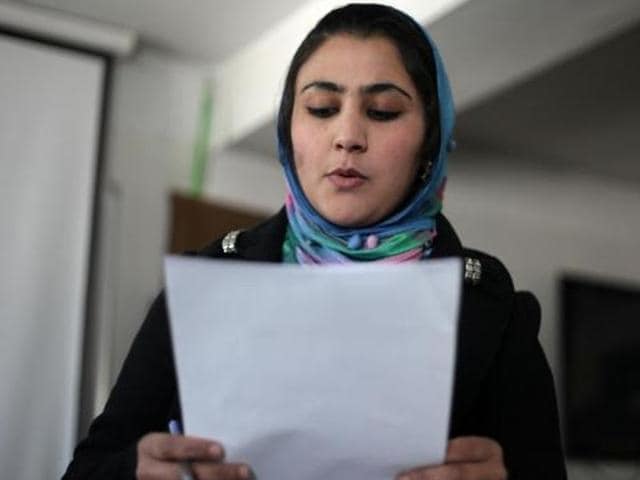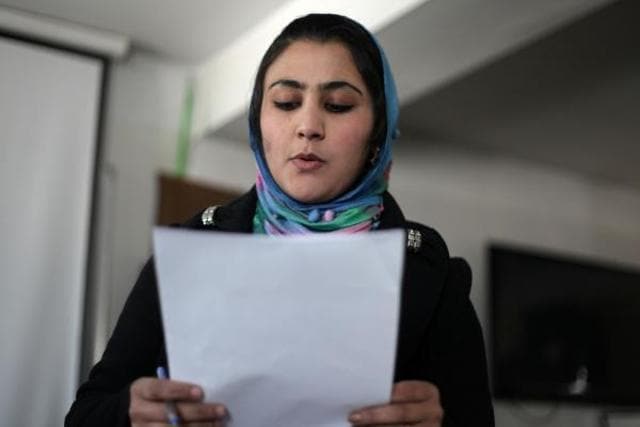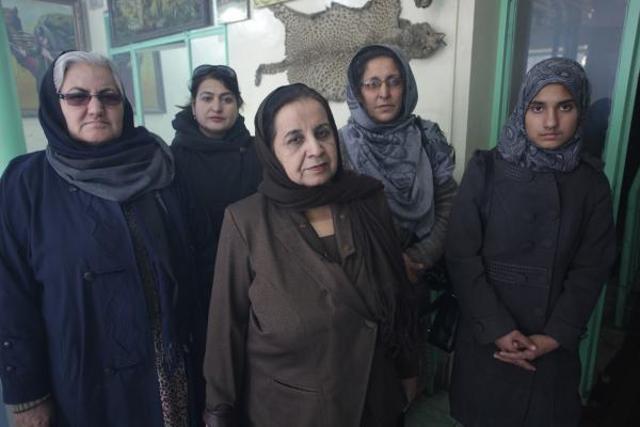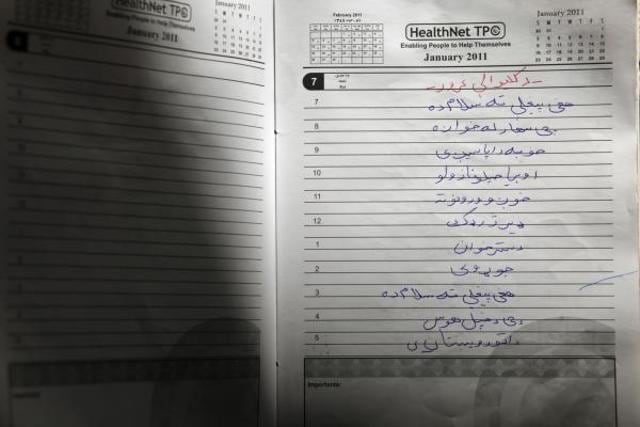Beautiful yet sad: Afghanistan’s female poets risk all for verse
Mirman Baheer is a women’s literary society that holds secret gatherings in Kandahar city, the spiritual birthplace of the famously misogynistic Taliban. In Afghanistan, poems called landai express love and grief in two lines. For many Afghan women, these poems are a powerful form of protest.
With her kohl-rimmed eyes cast down, Nadia lilts through a folk couplet before a secret assembly of women poets on a forbidden subject that often gets people killed in Afghanistan -- love.

“Like a candle I burn all night, separated from my lover,” the 20-year-old intones in Pashto.
“I melt and fade like hot wax.”
The young university student is part of Mirman Baheer, a women’s literary society that holds secret gatherings in Kandahar city, the spiritual birthplace of the famously misogynistic Taliban.
Read: ‘Poetry is all around us,’ says poet Sudeep Sen
Her ode to love is a landay, two-line Pashtun folk poems that have become a symbol of cultural rebellion for women and an outlet for incendiary issues, from child brides to honour killings.
They are more commonly about romantic love -- sometimes overlapping with sex, marriage and heartache -- in a tightly gender-segregated society where any public display of it is seen as a shocking breach of tradition.

“Who will marry a woman who indulges in love poetry?” said Nadia, quoting her mother who forbade her from joining the poetry club.
“People instantly judge: ‘She writes about love, she must be a woman of loose morals.’”
News of the meetings has spread by word of mouth, but mobile phones are increasingly used to organise the clandestine gatherings.
Read: ‘I grew up in a culture of adab and adaab’
Single women and housewives swaddled in brightly coloured headscarves come together in a basement room for the poetry reading, some of them risking punishment or even death if discovered.
A few were accompanied by their little sisters to help fabricate convincing alibis when they return home. And for those too afraid to defy their families, Mirman Baheer offers a hotline service for women to call clandestinely and leave their landays, which are read out during weekly sessions.
‘Killed for celebrating love’
The underground gathering offers a glimpse into the hidden world of Afghan women flouting patriarchal mores in the country’s conflict-torn Pashtun heartland.
“Landays, with the power of their grief, love, rage, defy any facile notion of a Pashtun woman as a mute ghost beneath a blue burqa,” said Eliza Griswold, author of “I am the Beggar of the World: Landays from Contemporary Afghanistan”.
Read: 10 gems penned by the legendary poet Kaifi Azmi
“Thousands of years old, these remarkable folk poems provide outsiders a means to explore the inner world of a culture that can be hard to access.”
Nearly 15 years since the Taliban Islamist regime was ousted from power in a US-led invasion, Afghanistan has witnessed a sea change in women’s rights, with female lawmakers and even pilots now commonplace.

But gender parity remains a distant dream amid pervasive conservative attitudes that still deride women as “Naqis-ul-aqal” (having a weaker intellect than men) and deem that a female voice should be forbidden in public spaces. “Morality protectors in Afghan society believe that male honour can be protected only by locking away women where nobody can see or hear them,” said poet and writer Waheed Warasta.
“Women who dare to step out to recite poetry do so at the risk of being labelled as prostitutes.”
In 2010, a teenage poet known by her nickname Zarmina set herself on fire after a violent altercation with her brothers who caught her reading a love poem over the phone and presumed there was a boy on the other end of the line.
Read: An Afghan poet shapes metal and hard words with same passion
A resident of Gereshk district in the Taliban insurgency-wracked province of Helmand, Zarmina was a regular caller to Mirman Baheer’s poetry helpline and later died of her burns in hospital.
She is glorified within the club as a “poet martyr”.
“We live in a country where people get killed for celebrating love,” said Pakeza Arzo, a Kabul-based coordinator at Mirman Baheer, who transcribes landays from anonymous callers.
‘Antidote to heartbreak’
The club’s weekly gatherings in Kabul are held openly and attract elite university professors, lawmakers and journalists, but its meetings in conservative areas such as Kandahar and Helmand are held under a tight veil of secrecy.
Mobile phones can provide a lifeline. Arzo said some rural women who have no freedom to step out of their homes break down over the phone, their poems giving vent to a torrent of anguish.

“Landays reflect their struggles and work like an antidote to heartbreak,” Arzo said.
One caller, who calls in regularly, left this landay:
“When my husband took a second wife, I burned /
I no longer care about the flames of hell.”
Another bemoaned the stoning of a young woman accused of adultery.
“For whose sin am I sacrificed to tradition /
My biggest crime is that I am a woman.”
And one caller from Khost province bordering Pakistan was unabashedly bold, her landay laced with contempt for the prevalent machismo culture.
“You demand a kiss by force /
Night will give way to dawn, but you shall not have my lips.”
For many, going out of their homes to buy mobile phone credit is akin to traversing a minefield. They are fearful of getting caught and some call from a different number every time.
And it usually ends with a familiar pattern: after a while, the calls abruptly stop, Arzo said.
“This sudden silence can only mean two things: either the poet has been killed or married off.”
Follow @htlifeandstyle for more.
Catch your daily dose of Fashion, Health, Festivals, Travel, Relationship, Recipe and all the other Latest Lifestyle News on Hindustan Times Website and APPs.



